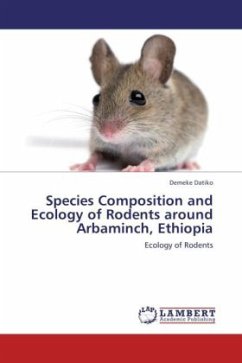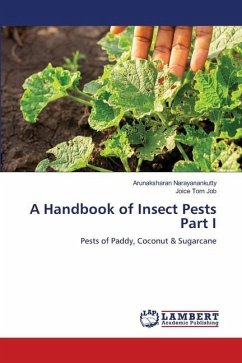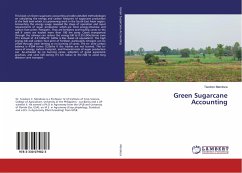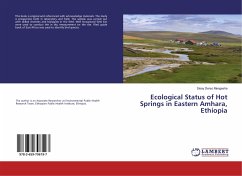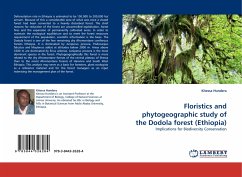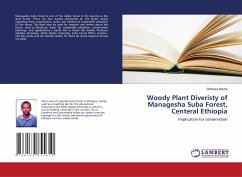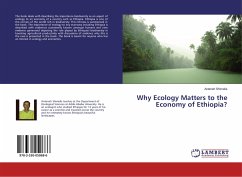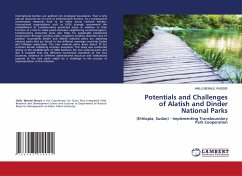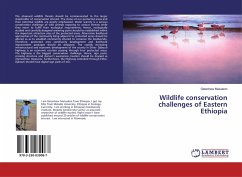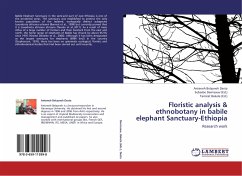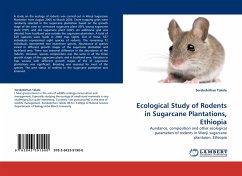
Ecological Study of Rodents in Sugarcane Plantations, Ethiopia
Aundance, composition and other ecological parameters of rodents in Wonji sugarcane plantaion, Ethiopia
Versandkostenfrei!
Versandfertig in 6-10 Tagen
32,99 €
inkl. MwSt.

PAYBACK Punkte
16 °P sammeln!
A study on the ecology of rodents was carried out in Wonji Sugarcane Plantation from August 2005 to March 2006. Three trapping grids were randomly selected in the sugarcane plantation based on the growth stage of the cane as- immature sugarcane plant (ISP), young sugarcane plant (YSP), and old sugarcane plant (OSP). An additional grid was selected from bushland area outside the sugarcane plantation. A total of 629 captures were made in 2940 trap nights. Out of these, 557 individuals represented eight species of rodents. The remaining 72 individuals represented two insectivore species. Abundanc...
A study on the ecology of rodents was carried out in Wonji Sugarcane Plantation from August 2005 to March 2006. Three trapping grids were randomly selected in the sugarcane plantation based on the growth stage of the cane as- immature sugarcane plant (ISP), young sugarcane plant (YSP), and old sugarcane plant (OSP). An additional grid was selected from bushland area outside the sugarcane plantation. A total of 629 captures were made in 2940 trap nights. Out of these, 557 individuals represented eight species of rodents. The remaining 72 individuals represented two insectivore species. Abundance of species varied in different growth stages of the sugarcane plantation and bushland area. There was seasonal difference in the abundance of the rodents. However, species composition was the same in all the three growth stages of the sugarcane plants and in bushland area. Variation in trap success with different growth stages of the of sugarcane plantations was significant. Breeding was seasonal for most of the species. The pest status of rodents in the sugarcane plantation was assessed.



